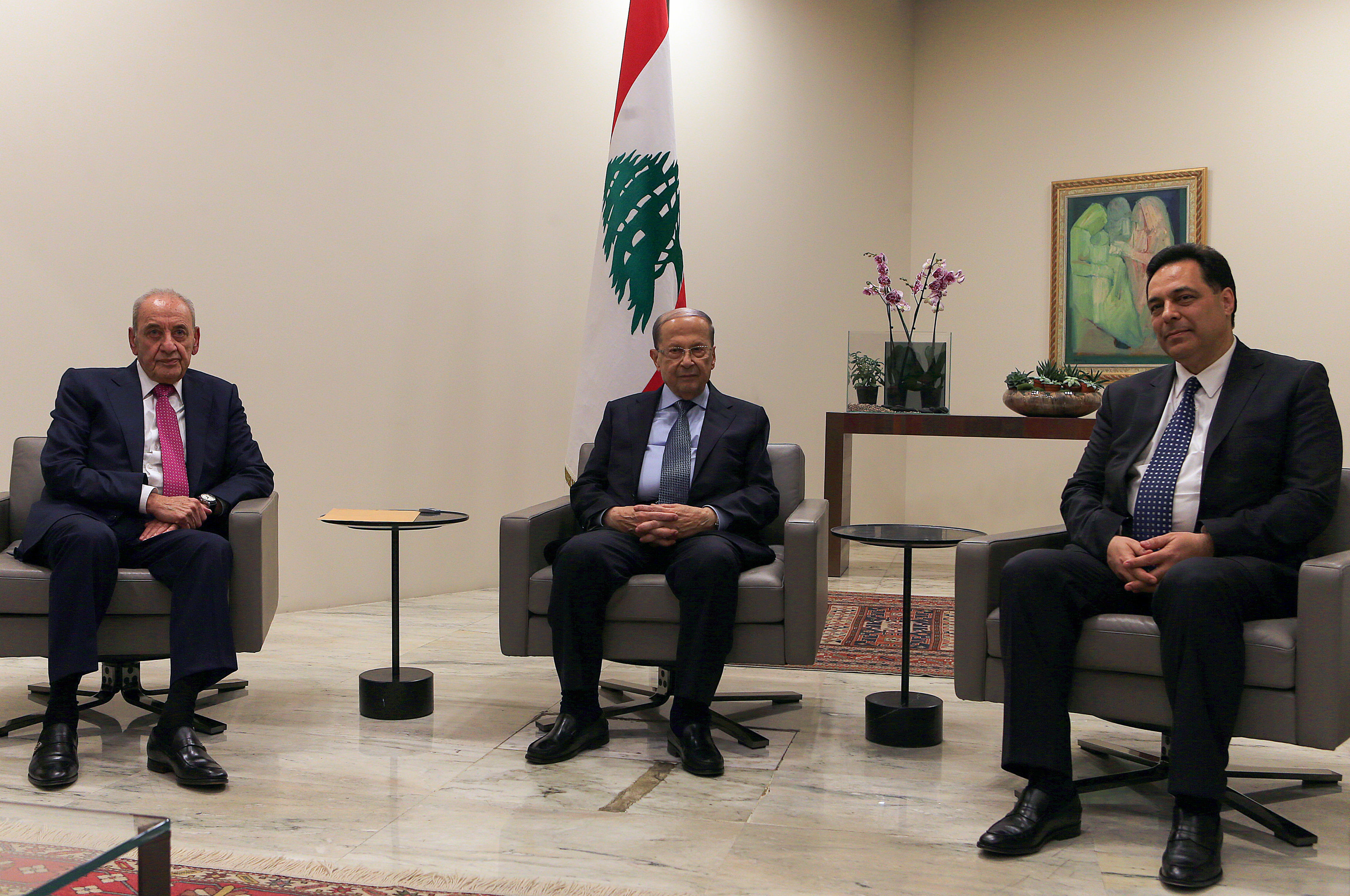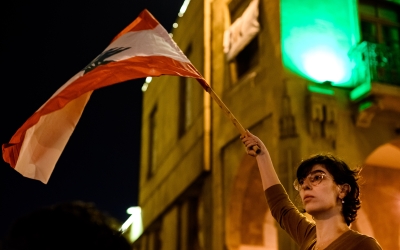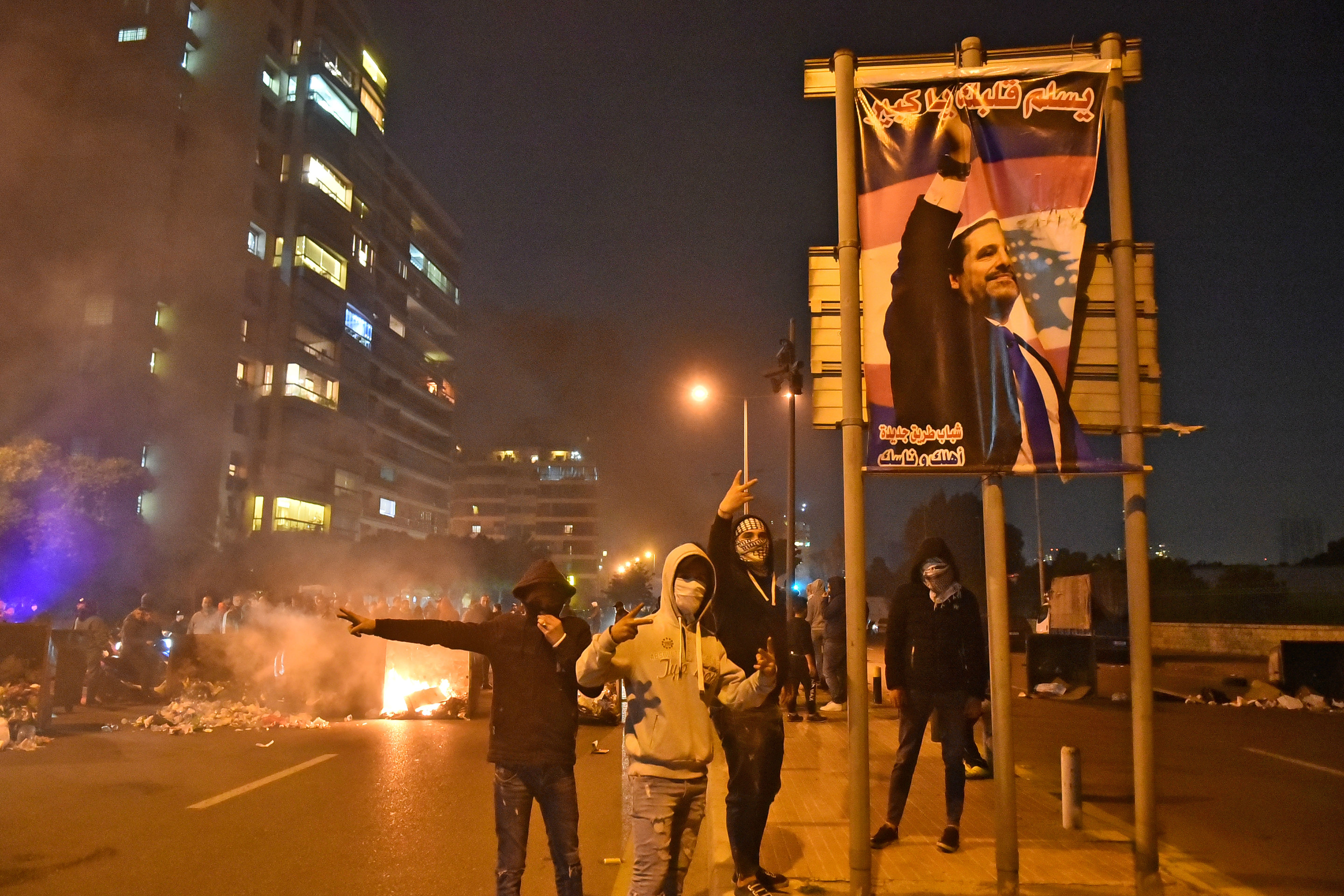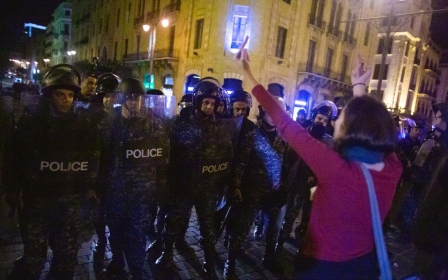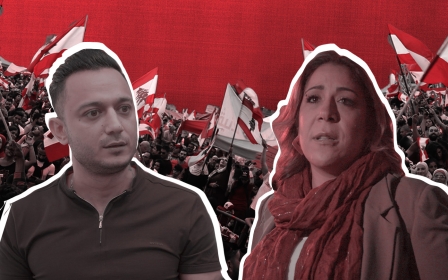Hassan Diab: The man charged with pulling Lebanon from the mire
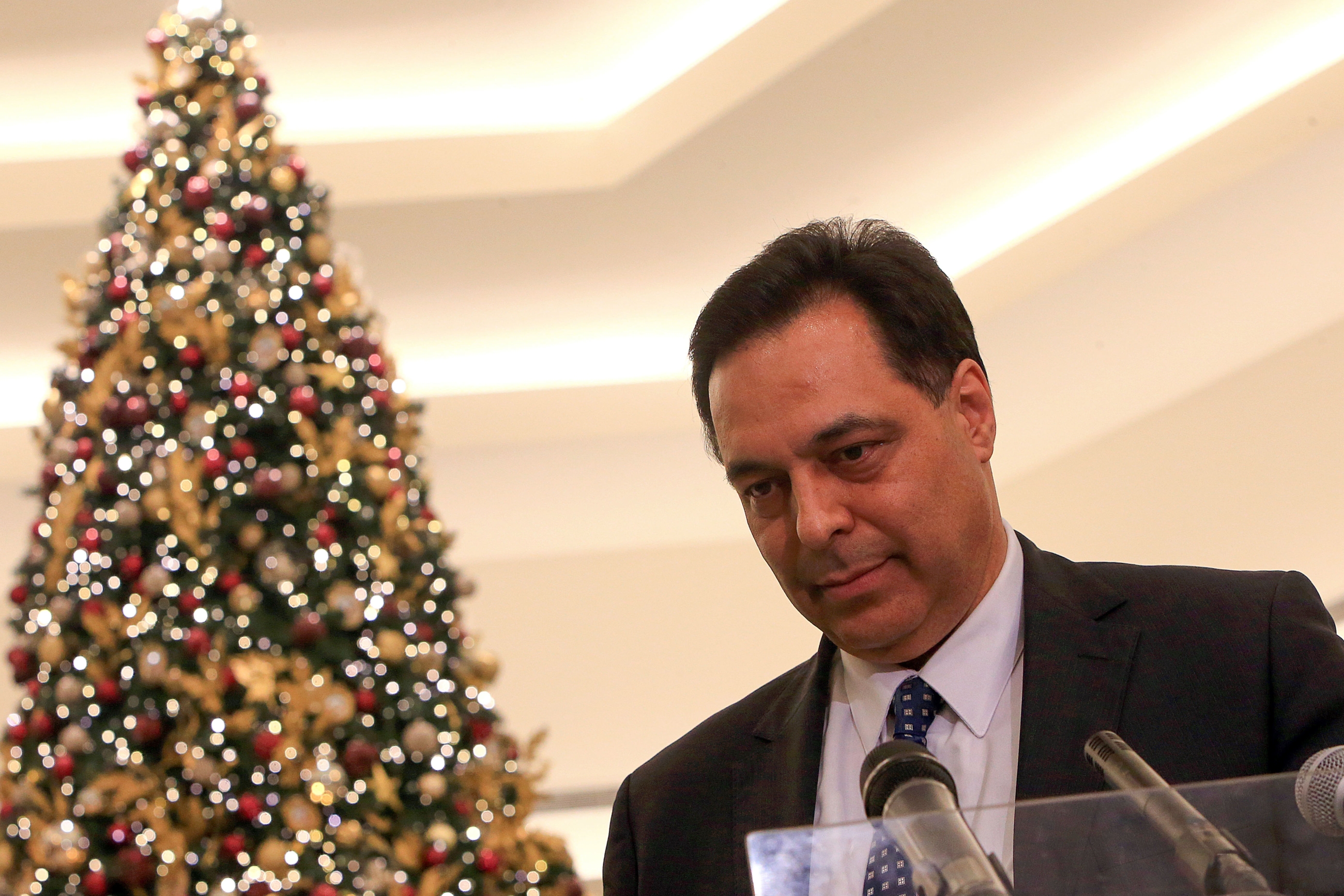
Following almost two months of political deadlock, Lebanese MPs on Thursday were able to elect a new prime minister-designate through binding consultations.
After weeks of different names being touted, the choice of Hassan Diab, however, came as a surprise.
The former education minister won thanks to key endorsements from Hezbollah, Amal and the Free Patriotic Movement parties.
Diab’s name wasn’t floated until earlier this week, with several other candidates opting out since Saad Hariri’s resignation on 29 October. Hariri, also an MP, had bowed out twice, most recently the night before the consultations.
Hariri’s Future Movement party, which is mostly Sunni and the largest in parliament, decided not to endorse anyone as prime minister.
New MEE newsletter: Jerusalem Dispatch
Sign up to get the latest insights and analysis on Israel-Palestine, alongside Turkey Unpacked and other MEE newsletters
'He’s very low key – you can see there is no personal security detail or anything like that'
- Neighbour
The difference in the outgoing and incoming prime minister’s profiles is stark. Hariri is the scion of a political dynasty and a household name across the region.
Diab, meanwhile, is very much part of the same political elite but lacking Hariri’s longstanding time in the limelight.
“He’s very low key - you can see there is no personal security detail or anything like that,” one of his neighbours told local media.
So who is Hassan Diab? And does he have what it takes to steer Lebanon out of its political and economic crisis?
Support for the uprising
An engineering professor and vice president at the American University of Beirut, Diab studied in England at Leeds Metropolitan University and the University of Surrey, later earning his PhD from the University of Bath in 1985.
While Diab keeps a relatively low profile online, he praised the uprising back on its fourth day in late October.
“In a majestic historical scene, the Lebanese people unified to defend their right to a free and dignified life,” he tweeted, adding that it inspires a better future where Lebanon can “return to its glory, brilliance, and prosperity”.
'I have been a seeker of the truth since my early days. I have been described as an entrepreneur, innovator and an academic leader in higher education'
- Hassan Diab
However, his website includes a downloadable 134-page CV, opening with a Ralph Waldo Emerson quote: “Don’t go where the path may lead, go instead where there is no path and leave a trail.”
In the document’s 30-page preface, Diab makes it clear he believes reforming Lebanon’s education system and promoting entrepreneurship is key to a better economic future.
“I have been a seeker of the truth since my early days,” Diab writes. “I have been described as an entrepreneur, innovator and an academic leader in higher education.”
Lebanon’s prime minister-designate clearly has a good opinion of himself, writing that he “was blessed with an innate sense of wisdom from my early years accompanied, I believe, by the grace of God to make the right choices since my teen years”.
“Although many of my successes are attributed to my hard work; that was not my only enabler to reach the heights I have reached,” he adds.
Stint in government
Diab’s only prior stint in frontline Lebanese politics was for about two years as education minister between June 2011 and March 2013.
Diab was in a cabinet headed by Tripoli MP and billionaire Najib Mikati, a government described by many as controversial, due to its exclusion of pro-western parties such as the Future Movement and Lebanese Forces.
Their absence led that administration to be often described as a “Hezbollah” or “Syria-backed” government.
However, Mikati and his handful of MPs did not endorse Diab as prime minister - nor any other candidate for that matter.
In one of his first media interviews as education minister in 2011, a calm and soft-spoken Diab described himself as a “technocratic minister”. “I have lots of experience in academia for over a quarter of a century,” he added.
According to Diab’s CV, he made efforts as education minister to improve and reform the public school curriculum, and improve the salary scale of those schools’ teachers and workers.
However, the prime minister-designate was not without controversy during his stint in cabinet.
One baffling incident was Decree 421, which allowed Diab to rename a public school after his own mother.
Also attracting attention and ridicule were the hardback volumes published by the education ministry that - in short - highlighted Diab’s achievements as minister.
“Documentary of Events during Minister Hassan Diab’s Term at the Ministry of Education and Higher Education” was published in 2013, spanning a whopping 1,000 pages.
The book highlighted every school opening, meeting, conference, workshop and event he attended, as well as keynote speeches, memorandums of understanding, and even events and competitions held by the ministry.
Another book published that year, “On the Road to Modernity: Emergency Plan, Projects, and Achievements of the Ministry of Education and Higher Education 2011-2013”, laid out his vision, but also his achievements and professional background in a little over 600 pages.
Mixed responses
As consultations took place in Baabda, some individuals who have worked or corresponded with Diab came out in criticism.
Nizar Hattab, who said he was a former engineering student of Diab’s, claimed that the PM-designate would publish his students’ work under his own name. Hattab has since removed the tweet.
Elsewhere, Humam Kadara, a former American University of Beirut professor now teaching at the University of Texas MD Anderson Cancer Center, recalled an interaction with Diab back in Beirut.
In a Kadara Facebook post that was shared widely on social media, he recounted how the now prime minister-designate urged him to hire his son, insisting that he would pay the salary himself. According to Kadara, on meeting the son and asking him to write a cover letter, he was told: “Didn’t dad talk to you?”
The medical researcher has since made his post private. “I was receiving many, many motivations,” he said in response to someone on Facebook asking him about the post. “I am a scientist by nature … I only wrote of an experience … that I believe speaks a lot of the day to day atrocities that may impact an institution or a country. A person needs to lead by example before anything else.”
Middle East Eye has approached Diab for comment on both allegations, but had not received a response by the time of publication.
Trending hashtags over the prime minister-designate continue to compete on Twitter: #Down_With_Hassan_Diab and #Yes_To_Hassan_Diab.
Those rejecting Diab’s appointment, many of whom support the almost three-month-old uprising, continue to call for an independent prime minister and government away from the country’s ruling parties.
While many who endorse Diab are clear supporters of Hezbollah, Amal and the Free Patriotic Movement, others expressed the need to give him a chance, mostly citing his academic credentials and the fact he is not affiliated to a particular political party.
The work begins
Following his meeting with President Michel Aoun and Speaker Nabih Berri in Baabda, the prime minister-designate told the press that his government would represent all political forces, “as well as the popular movement”.
“In 64 days, I heard your voices that expressed pain and anger from the situation we are in, especially from corruption,” he said in a message directed at protesters, promising to form a cabinet that reaches the “standards of the Lebanese people’s aspirations” with an economic reform plan that is “pragmatic, that is more than just ink on paper”.
Diab now faces the daunting task of forming a new government, following meetings with MPs, former prime ministers, political leaders and other senior officials.
Lebanon is no stranger to political paralysis and deadlock; its last cabinet, formed under far more stable circumstances, took about eight months to form. However, Diab is adamant that it will take no longer than six weeks, when asked by German broadcaster Deutsche Welle.
Though key endorsers Hezbollah and Amal support a hybrid “techno-political” government, Diab said that, as a self-described technocrat, he hoped to form an independent technocracy.
“[It won’t] represent previous governments, whether in its ratio of technocrats or women,” he said. “I see an opportunity for everyone to cooperate.”
None of the major Sunni parties backed Diab, and with only six Sunni MPs endorsing him and clear support from Hezbollah, there is also a fear of US sanctions on the country or its citizens. Washington has intensified efforts in recent months to target Hezbollah or Hezbollah-affiliated officials and institutions.
However, the prime minister-designate believes the contrary.
“I believe the Americans will cooperate with a government like this, because this government’s goal is to save Lebanon from the situation - economic, social, and so on,” he said.
“I expect the opposite. I expect full support, whether it’s the Europeans or the United States of America.”
This article is available in French on Middle East Eye French edition.
Middle East Eye delivers independent and unrivalled coverage and analysis of the Middle East, North Africa and beyond. To learn more about republishing this content and the associated fees, please fill out this form. More about MEE can be found here.


